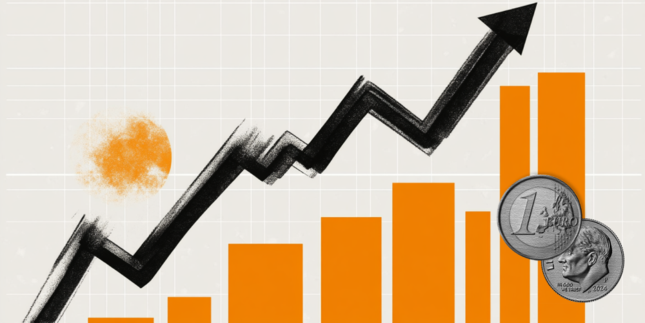After setting a new multi-month high near 1.3300 earlier in the week, GBP/USD trades in a narrow band at around 1.32700 on Friday and remains on track to end the week in positive territory. Markets turn quiet on Friday as trading conditions thin out on Easter Holiday.
NZD/USD Exchange rate
Editors’ Picks

EUR/USD stabilizes above 1.1350 on Easter Friday
EUR/USD enters a consolidation phase above 1.1350 on Friday as the trading action remains subdued, with major markets remaining closed in observance of the Easter Holiday. On Thursday, the European Central Bank (ECB) announced it cut key rates by 25 bps, as expected.

Gold ends week with impressive gains above $3,300
Gold retreated slightly from the all-time high it touched at $3,357 early Thursday but still gained more than 2% for the week after settling at $3,327. The uncertainty surrounding US-China trade relations caused markets to adopt a cautious stance, boosting safe-haven demand for Gold.

How SEC-Ripple case and ETF prospects could shape XRP’s future
Ripple consolidated above the pivotal $2.00 level while trading at $2.05 at the time of writing on Friday, reflecting neutral sentiment across the crypto market.

Future-proofing portfolios: A playbook for tariff and recession risks
It does seem like we will be talking tariffs for a while. And if tariffs stay — in some shape or form — even after negotiations, we’ll likely be talking about recession too. Higher input costs, persistent inflation, and tighter monetary policy are already weighing on global growth.
Majors
Cryptocurrencies
Signatures
NZD/USD, THE “KIWI”
The NZD/USD currency pair, also called the “Kiwi”, tells the trader how many US dollars (the quote currency) are needed to purchase one New Zealand dollar (the base currency). Together with the Australian Dollar and the Canadian Dollar, the NZD is a commodity currency, that is a currency whose country's exports are largely comprised of raw materials (precious metals, oil, agriculture, etc.).
Along with the Australian Dollar, the NZD has been for many years a traditional vehicle for carry traders, which has made this currency also very sensitive to changes in interest rates.
HISTORIC HIGHS AND LOWS FOR NZD/USD
- All-time records: Max : 1.49 on 5/11/1973 - Min: 0.3962 on 16/10/2000
- Last 5 years: 0.7737 on 27/04/2015 - Min: 0.65794 on 20/08/2015
* Data as of February 2020
ASSETS THAT INFLUENCE NZD/USD THE MOST
- Currencies: AUD, CNY and YEN (Australia, China and Japan are important regional partners of New Zealand). This group also includes the following currency pairs: EUR/USD, GBP/USD, USD/JPY, AUD/USD, USD/CHF, USD/CAD, GBP/JPY and EUR/JPY
- Commodities: First of, coal. New Zealand has extensive coal resources: coal accounts for about 10% of New Zealand’s primary energy (excluding transport fuels). Other important commodities are Silver and Iron Ore.
- Bonds: GNZGB10 (New Zealand Govt Bond 10 Year) and AGB (debt securities issued by the Australian Government) and T-NOTE 10Y (10 year United States Treasury note).
- Indices: NZX (New Zealand Exchange), ASX (Australian Securities Exchange) and Nikkei 225 (a stock market index for the Tokyo Stock Exchange).
ORGANIZATIONS, PEOPLE AND ECONOMIC DATA THAT INFLUENCE NZD/USD
The organizations and people that affect the most the moves of the NZD/USD pair are:
- Reserve Bank of New Zealand (RBNZ), the central bank of that country. It was established in 1934 and is constituted under the Reserve Bank of New Zealand Act 1989. The Governor of the Reserve Bank is responsible for New Zealand's currency and operating monetary policy. The Bank's current Governor is Adrian Orr.
- New Zealand Government (whose Prime Minister is Jacinda Ardern) and its Ministry of Business, Innovation and Employment (MBIE) that implement policies that affect the economy of the country.
- Asia-Pacific Economic Cooperation (APEC), forum for 21 Pacific Rim member economies that promotes free trade throughout the Asia-Pacific region.
- The US Government (and its President Donald Trump): events as administration statements, new laws and regulations or fiscal policy can increase or decrease the value of the US Dollar and the currencies traded against it, in this case the New Zealand Dollar.
- Fed, the Federal Reserve of the United States whose president is Jerome Powell. The Fed controls the monetary policy, through active duties such as managing interest rates, setting the reserve requirement, and acting as a lender of last resort to the banking sector during times of bank insolvency or financial crisis.
In terms of economic data, as for most currencies, the NZD/USD traders have to keep an eye on:
- GDP (Gross Domestic Product), the total market value of all final goods and services produced in a country. It is a gross measure of market activity because it indicates the pace at which a country's economy is growing or decreasing. Generally speaking, a high reading or a better than expected number is seen as positive for the NZD, while a low reading is negative.
- Inflation measured by key indicators as the CPI (Consumer Price Index) and the PPI (Production Price Index), which reflect changes in purchasing trends.
